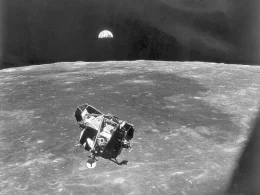Introduction
In today’s world, we are constantly bombarded with information about issues that affect our daily lives. From climate change to public health, it can be overwhelming to sift through the facts and make informed decisions. That’s where science education comes in- by providing us with the knowledge and tools to understand complex issues, we become empowered to take action and make a difference. In this blog post, we’ll explore how science education can help us navigate the challenges of climate change and its impact on public health, ultimately leading to a more informed society. So buckle up and let’s dive into the fascinating world of science!
The Science of Climate Change
The science of climate change is a complex and multifaceted topic that has been extensively studied by scientists over the past few decades. It involves an intricate interplay between natural and human-induced factors, including carbon emissions from burning fossil fuels, changes in land use patterns, and alterations in atmospheric temperature and precipitation patterns.
One key aspect of the science of climate change is understanding how different greenhouse gases contribute to global warming. Carbon dioxide (CO2) is one of the main culprits responsible for trapping heat in our atmosphere, but other gases like methane (CH4), nitrous oxide (N2O), and fluorinated gases also play significant roles.
Another important area of study within climate science is predicting future impacts on our planet’s ecosystems. This includes changes to wildlife habitats, ocean acidification, sea-level rise, more frequent extreme weather events such as hurricanes or droughts – all which can have far-reaching effects on public health.
The science of climate change continues to evolve as new research emerges about its causes and consequences. However it remains clear that there are many aspects that need to be tackled urgently if we hope to mitigate its worst impacts on people around the world.
The Impact of Climate Change on Public Health
Climate change is not just an environmental issue, but it also poses a significant threat to public health. The rise in global temperature leads to extreme weather conditions such as heatwaves and floods, which can result in various health problems. Extreme heat can cause dehydration, heat exhaustion and even stroke among vulnerable individuals like children and the elderly.
Air pollution caused by the burning of fossil fuels is another consequence of climate change that has adverse effects on respiratory health. Polluted air aggravates lung diseases such as asthma, bronchitis and emphysema while increasing the risk of heart attacks and strokes.
Climate change also affects waterborne diseases like cholera and typhoid fever as rising temperatures create favorable conditions for bacteria growth in water bodies. Natural disasters resulting from climate change can lead to injuries or death due to flooding, landslides or storms.
Climate change significantly impacts public health by causing extreme weather conditions leading to several severe illnesses aggravated by polluted air quality while posing risks for infections through contaminated water sources during natural disasters.
The Importance of Science Education in Empowering Individuals to Make Informed Decisions
Science education plays a crucial role in empowering individuals to make informed decisions, especially when it comes to issues that affect our environment and health. With the rise of fake news and misinformation online, having a strong foundation in science can help us distinguish fact from fiction.
A good science education equips us with critical thinking skills that enable us to evaluate evidence objectively. By understanding scientific principles and processes, we become better equipped to discern which sources are credible and trustworthy.
In addition, science education helps us understand complex challenges such as climate change by breaking them down into manageable pieces. This makes it easier for individuals to identify practical solutions or ways they can contribute towards mitigating the problem.
Science education also fosters a sense of curiosity about the world around us – this encourages lifelong learning and an ongoing interest in scientific discoveries. In today’s fast-paced world where technology is constantly evolving, staying curious keeps one up-to-date with continuous breakthroughs.
Ultimately, an individual who has received a solid grounding in science will be better equipped not only for making informed decisions but also for contributing positively towards society at large.
Conclusion
Science education is crucial in empowering individuals to make informed decisions regarding climate change and its impact on public health. With the growing concern about global warming and its effects on our planet, it is essential that we educate ourselves about the science behind it.
By understanding how climate change works, we can take necessary steps to decrease our carbon footprint and reduce greenhouse gas emissions. This not only benefits the environment but also improves public health by reducing air pollution and mitigating extreme weather conditions.
Science education helps us understand complex issues such as climate change and equips us with the knowledge needed to make informed decisions. By promoting science literacy, we can work towards a healthier future for ourselves and generations to come.












